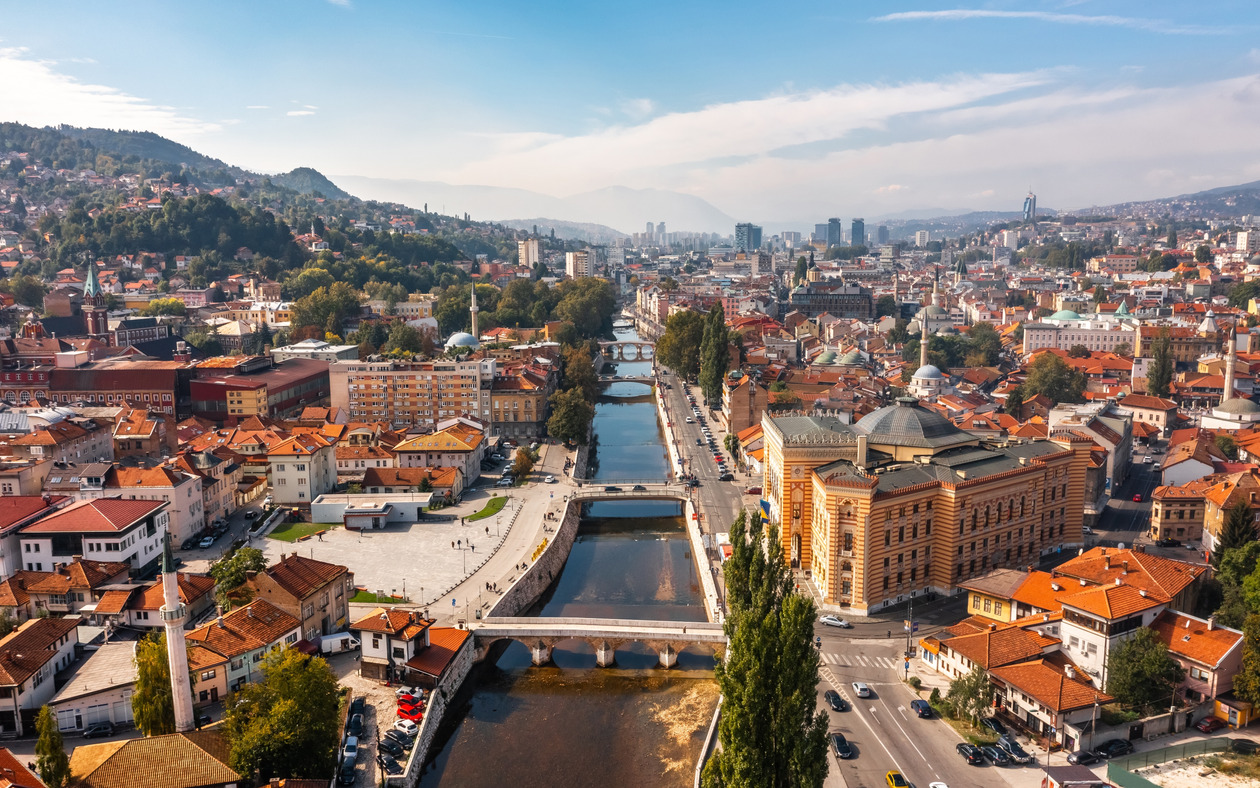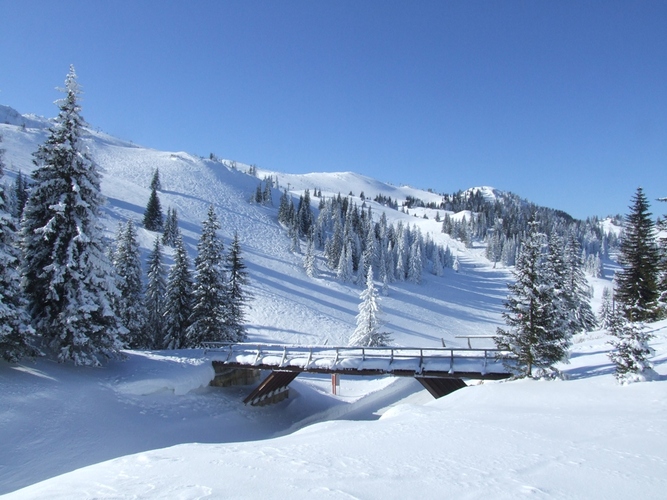Bosnia and Herzegovina
Podravka BiH is one of the largest Podravka subsidiaries in terms of number of employees. And when you're in Bosnia and Herzegovina, forget about diet. With the wide variety of dishes offered by numerous restaurants, you’ll hardly be able to resist the tempting aromas coming from strategically placed ćevapi grills, burek shops or pastry stores—where hospitable hosts will greet you at the door and win you over with their warmth and friendliness.

Podravka d.o.o.
Safeta Zajke 269
71000 Sarajevo
Bosnia and Herzegovina
tel: +387 33 475 760
fax: +387 33 475 779
e-mail: ured.sarajevo@podravka.ba
Contacts:
Igor Manjić, Director
Kenan Kapo, Sales Director
Haris Arnautović, Marketing Director
Široki Brijeg branch office
Podravka d.o.o.
Varaždinska 8
88220 Široki Brijeg
Bosnia and Herzegovina
tel: +387 39 700 900
fax: +387 39 700 999
e-mail: ured.siroki@podravka.ba
Contact:
Slavko Tica, Branch office manager
Banja Luka branch office
Podravka d.o.o.
Branka Perduva bb
78 000 Banja Luka
Bosnia and Herzegovina
tel: +387 51 389 650
fax: +387 51 389 652
e-mail: ured.banjaluka@podravka.ba
Contact:
Marina Marić, Branch office manager
Podravka has been successfully operating on the market of Bosnia and Herzegovina for more than three decades. It was founded in December 1992 and began operations in March 1993. During that period, it has gained numerous loyal consumers who recognize the quality and value of Podravka's products.
On the market of Bosnia and Herzegovina, Podravka is a leader in many categories, and the goal is to further expand the assortment with new innovative products that follow trends and meet the needs of consumers.
Podravka currently employs over 140 employees, thanks to whose dedication Podravka's products are available on shelves in every corner of Bosnia and Herzegovina. They are responsible for the successful sale of a wide range of Podravka's products from the categories of universal or special seasoning products, mono-spices, broths, soups, semi-finished dishes, cream spreads, desserts, snacks, cereals for children and adults, baby food, condiments, tomato-based products, fruit and vegetable products, canned meat products, rice and pasta, canned fish products, etc.
Geographical position
Bosnia and Herzegovina is situated on the Balkan Peninsula, covering an area of 51,129 km2 which borders Croatia in the west and south, Serbia in the east, Montenegro in the southeast and southwest and the Adriatic Sea in the south. The Ivan Sedlo pass (959 m), situated between the mountains Bitovnje and Bjelašnica, connects two large geographical units, the more inhabited with forest and arable land in the north and the smaller, rocky Herzegovina in the south. The climate is mainly continental.
Historical influence
The cultural, religious and natural diversity on a relatively small area of Bosnia and Herzegovina has from the very beginning resulted in turmoil but also wealth and forms a specific political, economic and cultural region. The state of Bosnia has been inhabited since the neolith age. During its turbulent history it has been influenced by Byzantine, Hungary and the neighbouring Croatia and Serbia. In 1463 Bosnia fell under Turkish control and in 1878 under Austro-Hungarian. On 28 June 1914 the heir to the throne Franz Ferdinand was assassinated in Sarajevo, triggering the beginning of World War I.
At the end of the war and from 1918-1941 Bosnia and Herzegovina comes into the formation of the Kingdom of Serbs, Croats and Slovenians, later the Kingdom of Yugoslavia and from 1943 it is within the Socialist Federative Republic of Yugoslavia. Bosnia and Herzegovina proclaimed independence in October 1991 and in 1992 a referendum followed for dissimilation from Yugoslavia. New war turmoil started in 1993 ending in 1995 with the Dayton Agreement. Today Bosnia and Herzegovina consists of two entities: the Federation of Bosnia and Herzegovina and the Serbian Republic. The Federation of Bosnia and Herzegovina is further divided into 10 cantons.
Cuisine characteristics
Food preparation, beverages and the pleasure food and drink offers is taken very seriously in Bosnia and Herzegovina. Fast food does not exist apart from «ćevabdžinice» or «burek parlours» and they could be considered as some kind of slow food meeting places. All the food in Bosnia is prepared slowly and it is enjoyed in the same manner, in good company and chatting. Meals are generous, mostly made from meat, vegetables and dairy products, and spices are used moderately. Dishes are mainly sautéed and boiled, and desserts, coffee and strong drinks are an unavoidable part of the eating ritual.
Typical ingredients
- Vegetables: cabbage, aubergines, tomato, zucchini, onion, string beans, leek, pepper, potato, cucumbers …
- Dairy products: kaymak, sour milk, pavlaka and cream
- Meat: lamb, veal/beef/baby beef/ mutton, pork
- Fish: trout, carp, catfish and other freshwater fish
- Fruit: plums, apples, pears, quince, preserved fruits, jams, home-made cornel-cherry marmalade and other.
Bosnian specialties:
- Starters: cicvara, popara, cold platter – “meza”
- Chowders: beg’s, Sarajevo, tarhana, Višegrad, vegetable chowder, Bosnian đuveč
- Ćevapčići (grilled minced meat): hadji’s, šiš, chicken, veal, and meat patties
- Cured meat products: smoked meat, bacon, sausages
- Burek and pies: cabbage, cheese, kljukuša, maslenica, potato,
- Sarma, sarma japrak (with wine leaves)
- Sataraš, peppers stuffed with potato, buranija
- Moussaka: (zucchini, blue aubergine) and kvrguša
- Sweet bread: Bosnian, somun, đevrek, corn
- Baklava, hurmašice, tufahije, lokum, cream puffs, cream pies and whipped-cream pies
- Coffee – in Bosnia you drink “kafa” by rule from a fildžan (Turkish coffee cup) with a sugar cube and rahat-lokum
- Home-made beer: Sarajevo, Tuzla and Nectar
- Strong drinks: plum brandy, pear brandy, quince and grape brandy, and the wine tradition is characteristic for the Herzegovina area.
Bosnian coffee is a reflection of Bosnian gourmet mentality. The preparation of coffee starts by roasting and grinding then finely ground coffee is put in a mildly heated metal pot or «džezva» and topped with boiling water. Džezva is then placed on a hot plate, coffee is stirred and brought to boil to the top of the džezva, making fine foam. A few drops of cold water are added to help the sediment drop. The bottom of the džezva has to be wider and become narrower towards the top. Coffee has to stand for a while and then you just have to pour the coffee or as Bosnians would say «Kafu/kahvu» into Turkish coffee cups and serve on specially forged trays with rose or walnut rahat-lokum and a glass of cold spring water. Of course, we thought of the «extra cup».
It is usually said that Herzegovinian prosciutto requires special skills to prepare. The correct position of the drying oven, exposure to cold winter winds, the correct choice of wood to be burned in the drying ovens, and proper storage are part of the traditional instructions for preparation. Herzegovinian prosciutto has a special taste and, when combined with cheese from the bellows, will provide every food lover with an inimitable gastronomic pleasure.
Leskovac barbecue is one of the most popular dishes in the RS, originating from the Caucasus. This type of barbecue arrived in Leskovac via Turkey, Greece and Macedonia. On its way, it gradually lost mutton and lamb, as it was originally prepared in the Caucasus, and increasingly included pork roasted in pieces.
Interesting facts
- Baščaršija in Sarajevo
- Old bridge in Mostar
- Tvrđava Kastel in Banja Luka
- Neum on the Adriatic
- Monastery Tvrdoš, Međugorje
- Blagaj, spring of the river Buna and Derviška tekija from the 16th century
- National park Sutjeska
- Jajce, fortress
- Počitelj fortress and Old Town
- Skiing resorts – Jahorina, Bjelašnica, Vlašić, Kupres and Blidinje
- Travnik – birth place of the Nobel Prize winner Ivo Andrić











